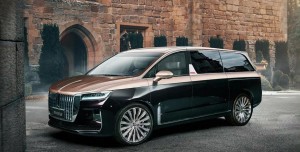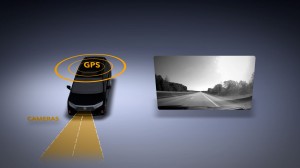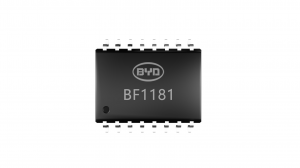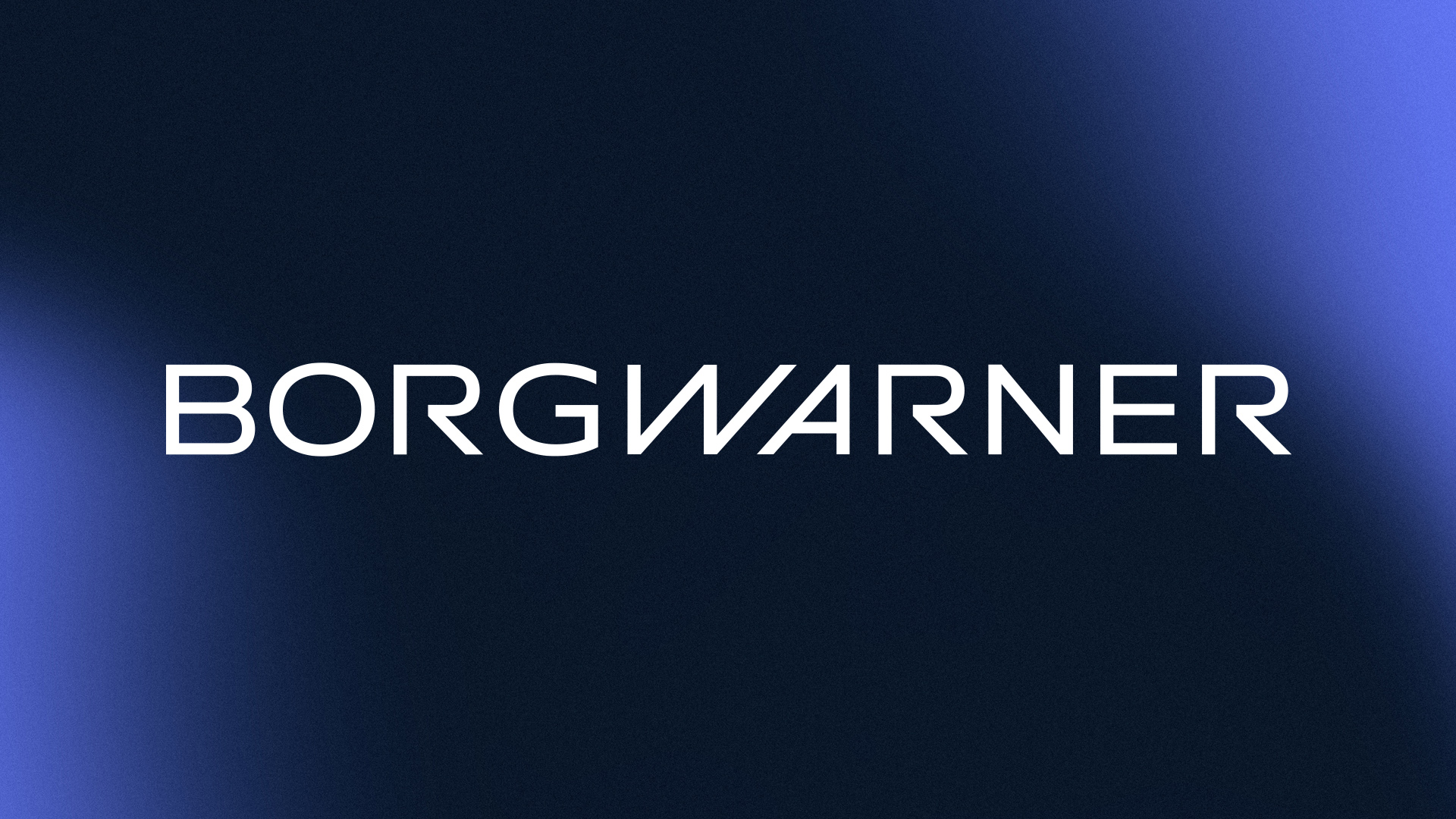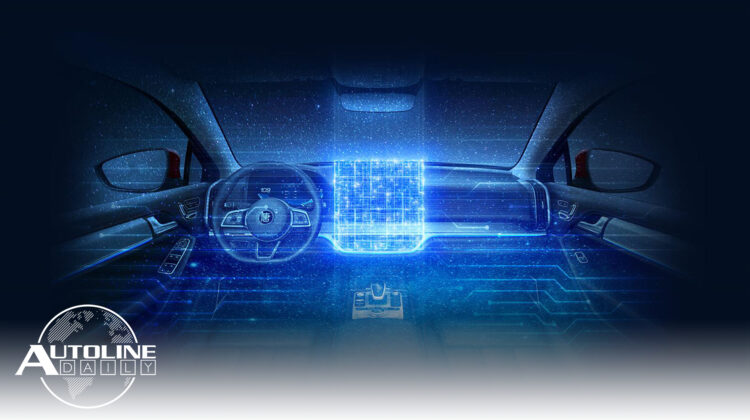
Listen to “AD #3224 – BYD Develops 1200-Volt System for EVs; Graphite Shortage Looms; Chinese Automakers Own 20% Of Daimler” on Spreaker.
Follow us on social media:
Runtime: 9:04
0:08 Graphite Shortage About to Hit Auto Industry
0:55 Mexico Threatens Legal Action Over U.S. EV Proposal
1:28 Germany Plans Stricter EV Incentive Requirements
2:19 Two Chinese Automakers Now Own Nearly 20% Of Daimler
3:43 Hongqi Introduces New Luxury Minivan in China
4:18 Honda Helps Out Highway Departments
4:47 Volta Trucks Now Developing Smaller EV Commercial Trucks
6:01 Continental & ZF Invest in AV Startup
6:52 BYD Develops 1200-Volt System for EVs
Visit our sponsors to thank them for their support of Autoline Daily: Bridgestone, Intrepid Control Systems and Schaeffler.
This is Autoline Daily, the show dedicated to enthusiasts of the global automotive industry.
GRAPHITE SHORTAGE ABOUT TO HIT AUTO INDUSTRY
Uh-oh, the auto industry is about to get hit with another shortage. This time it’s the graphite needed to make parts for EV batteries. Graphite producers cannot keep up with demand in China, and China accounts for 70% of graphite production globally. Reuters reports there’s going to be a shortage of 20,000 tons of graphite next year, which is enough to make 250,000 BEVs. And that’s a shortage in China alone, which means it’s going to be worse in the rest of the world. Graphite is used in the anode or negative pole in a battery, and demand for the raw material is expected to grow 27% per year over the next decade–but that’s only if producers can make enough of it.
MEXICO THREATENS LEGAL ACTION OVER U.S. EV CREDIT PROPOSAL
The USMCA, the free trade agreement between Canada, Mexico and the United States is confronting its first crisis. Yesterday, we reported Canada isn’t happy with the Biden Administration’s proposal to give an extra $4,500 in incentives to EVs made in the U.S. by union labor. Canada wants to align EV incentives with the U.S. to settle the dispute. And now Mexico says it’s going to take legal action and is threatening an appeal that will be decided by an international panel.
GERMANY PLANS STRICTER EV INCENTIVE REQUIREMENTS
And speaking of EV incentives, Germany’s new government said it will keep the country’s current policy in place for another year but after that it will make it tougher for vehicles to qualify for incentives. Car buyers in Germany currently get 9,000 euros or about $10,200 for a battery electric vehicle while plug-in hybrids qualify for 6,750 euros or $7,600 in incentives. Germany didn’t reveal specifics for the new policy but it will be based, in part, on a minimum distance an EV must travel under electric power. So, it sounds like plug-in hybrids and BEVs with small ranges won’t qualify in the future. Germany is aiming to have at least 15 million BEVs on its roads by 2030.
TWO CHINESE AUTOMAKERS NOW OWN NEARLY 20% OF DAIMLER
Daimler got headlines all over the world after it split into two companies, one for cars and one for trucks. But while we were all focused on that, Daimler quietly dropped a bombshell that most of us missed. It disclosed that BAIC, or the Beijing Automotive Industry Corporation, now owns 9.98% of Daimler. Add that to the 9.7% share that Geely owns, and two Chinese automakers now own nearly 20% of Daimler. Bloomberg reports that BAIC actually bought those shares back in 2019, but Daimler didn’t disclose it then because legally it didn’t have to, since BAIC was just under the 10% threshold. Daimler and BAIC are joint venture partners in China, and BAIC promised it will not raise its stake in Daimler above what it already has. Even so, Germany is uncomfortable that Chinese companies are taking ownership stakes in so many of its industrial icons.
HONGQI INTRODUCES NEW LUXURY MINIVAN IN CHINA
Is this one of the best-looking minivans you’ve ever seen, or what? Buick’s GL8 and Toyota’s Alphard are about to get some real competition in China’s premium van segment. The grille, the giant wheels and the two-tone paint job almost give it a Maybach kind of look. Gasgoo reports FAW’s Hongqi brand will launch this MPV sometime next year. Production will be quite limited, only 20,000 units a year, which means it definitely will be positioned as a luxury vehicle.
HONDA HELPS OUT HIGHWAY DEPARTMENTS
Honda wants to help out highway departments. It came up with a way for the sensors in its vehicles to judge what kind of condition lane markings are in. It ranks them from “ideal” to “needs repair.” That, and GPS data, could be sent to road crews so they know where to paint new lines. That also helps driver assistance systems, like SuperCruise and BlueCruise, which need well defined lane markings to operate, otherwise they’ll shut off.
VOLTA TRUCKS NOW DEVELOPING SMALLER EV COMMERCIAL TRUCKS
EV startup Volta Trucks, which is developing purpose built electric commercial trucks, announced it started the engineering phase of development of its 7.5 and 12-tonne variants. Last month, the company showed off a production ready design of its 16-tonne truck that was unveiled last year. Volta says the smaller trucks will have a similar design to the 16-tonne with its low, central seating position and wide visibility for drivers. Customer trials for the new models kick off in 2023 with series production scheduled to start a year later.
CONTINENTAL & ZF INVEST IN AV STARTUP
Did you ever hear of a software company called Apex before? Neither did we. But Continental and ZF sure heard of it. Yesterday they both bought small chunks of Apex. ZF bought 5% and while Continental did not disclose its holding, we’re guessing it’s about the same. Apex makes an open-source software platform for autonomous vehicles, called Apex.OS. As the complexity of autonomous vehicles rockets upward, Continental and ZF say Apex.OS will allow them to add functions and updates much more easily. This is a trend in the industry we need to keep an eye on. Cars are increasingly becoming defined and operated by software, not mechanical bits or electrical components. And suppliers are racing to enhance their software capabilities.
BYD DEVELOPS 1200-VOLT SYSTEM FOR EVs
In an effort to slash charging time, reduce weight and increase range, automakers are turning to higher voltage electrical systems. Most EVs on the road have 400-volt systems, but some newer EVs, like the Porsche Taycan and Hyundai IONIQ 5, feature 800-volt systems. But BYD Electronics announced it’s coming out with a new 1200-volt semiconductor chip that can be used to control power modules, electric motor function, power supply and even solar energy inverters. BYD has already started mass production and says it will be supplying automakers starting this month.
We’ve been teasing this revolutionary engine all week. Let’s drop some stats on you that explain why we’re so intrigued by it. 160 horsepower. 170 pound feet of torque. OK, maybe that doesn’t get you excited. But what if we told you the engine only weighs 35 pounds? And what if we told you it idles at 1,000 rpm but redlines at 25,000? Better still you can stack these modules together to get some pretty impressive output. How does 1,000 horsepower from a 220-pound engine sound to you? Chris Theodore, one of the best product people in the business, was so impressed he joined the company. The company, by the way, is called Astron Aerospace. The founder, president, CEO and chairman is a guy named Matthew Riley and he’s going to be on Autoline After Hours tomorrow. So is Chris Theodore. So we invite you to join us and learn about what could be a game changer of an engine.
But that’s a wrap for today. Thanks for joining us and we’ll be right back here again tomorrow.
Thanks to our partner for embedding Autoline Daily on its website: WardsAuto.com
Seamus and Sean McElroy cover the latest news in the automotive industry for Autoline Daily.






